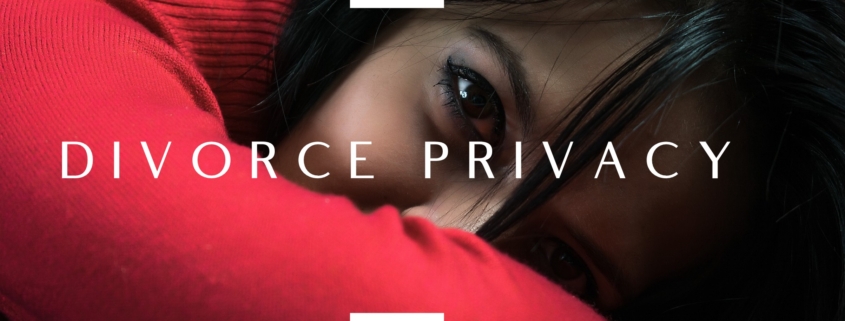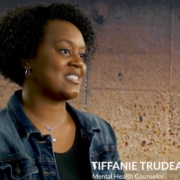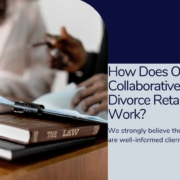Divorce Privacy
When you are going through divorce – a time of great hurt and vulnerability – the last thing you want is to have your pain on public display. And yet that is exactly what happens if you and your spouse chose to go through the traditional divorce court process. You have no divorce privacy.
It would not be uncommon for you and your spouse to file allegations against each other in the public court record questioning each other’s parenting skills. You often have to publicly display in response to written questions any personal belonging you have valued at $100 or more. Under cross-examination, you may have to justify, in a courtroom available to anyone who wants to watch, your grocery bill, haircut/beauty parlor expenditures, donation to religious organizations and/or charities, and medicinal needs.
Fortunately, there are processes that allow divorce privacy. One such process is Collaborative Divorce.
Collaborative Divorce Privacy
In Collaborative Divorce, you and your spouse have separate, independent lawyers. The lawyers are there solely for the purpose of helping you, privately, reach an out-of-court agreement. The law prohibits your Collaborative Lawyers from engaging in contested public court hearings.
All negotiations are had in private conference rooms (or secure videoconferencing platforms). Generally, nothing is filed with the court until you and your spouse have reached a full resolution of all issues. And, even then, the type and amount of information that does get filed can be greatly minimized.
Collaborative Divorce Privilege
In the last couple of years, Florida has recognized the value of divorce privacy and enacted the Collaborative Law Process Act (Chapter 61, Part III, Florida Statutes). The Act created a “privilege” for Collaborative Law Communications, which in essence means that the things you say or communicate in the Collaborative Process cannot be used against you in court. This gives you and your spouse the ability to speak your mind and consider creative resolutions without it becoming public record.
Learn About Collaborative Divorce Privacy
If you want to learn more about the Collaborative Process and the divorce privacy it offers, your first step is to contact a Collaborative Professional.
Adam B. Cordover is a member of the Boards of the International Academy of Collaborative Professionals and Florida Academy of Collaborative Professionals. Adam is co-author and co-editor of an American Bar Association book on Building a Successful Collaborative Family Law Practice (ABA 2018, with Forrest S. Mosten). Adam has trained attorneys, general magistrates, and judges in the Collaborative Process.









